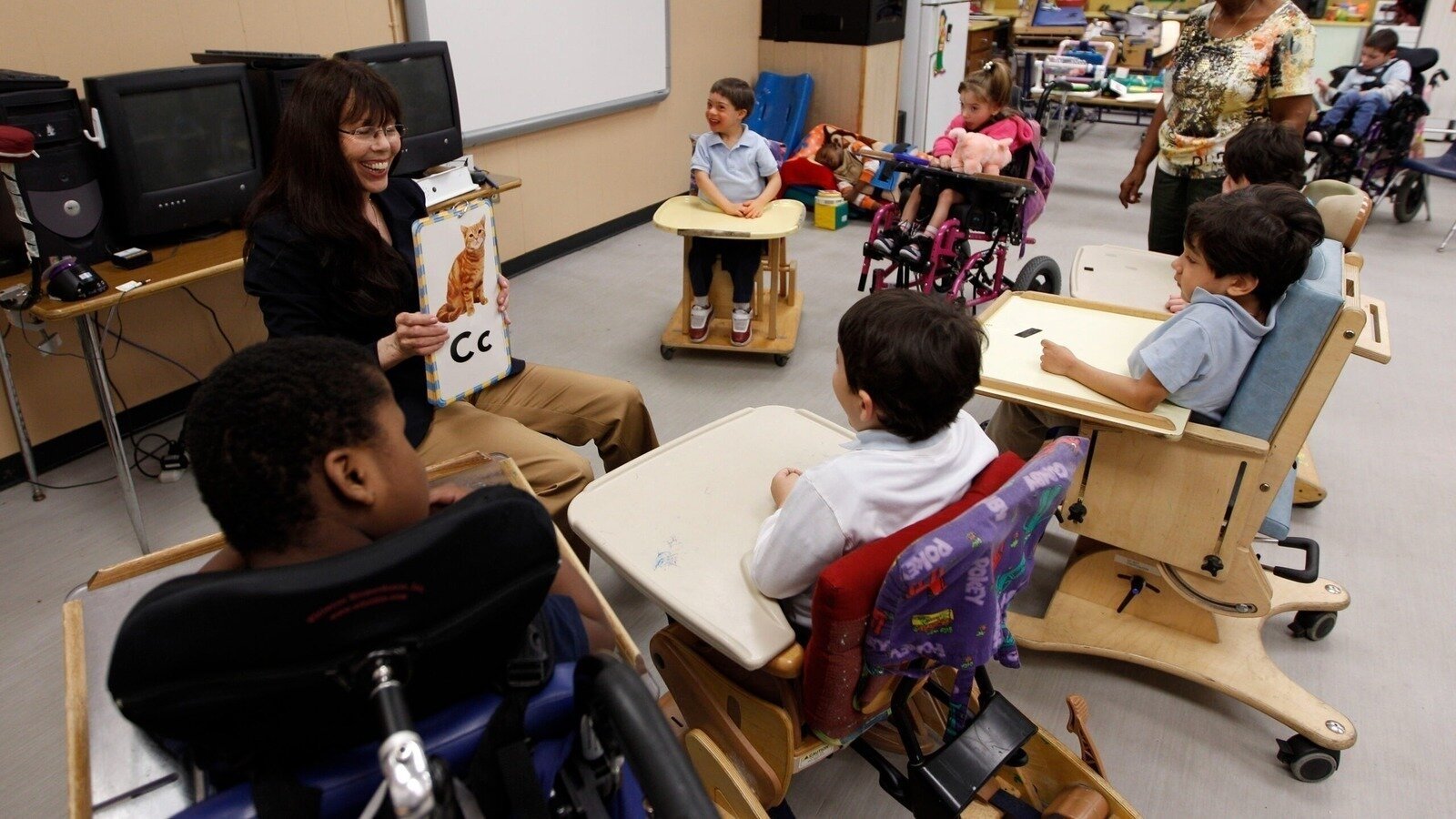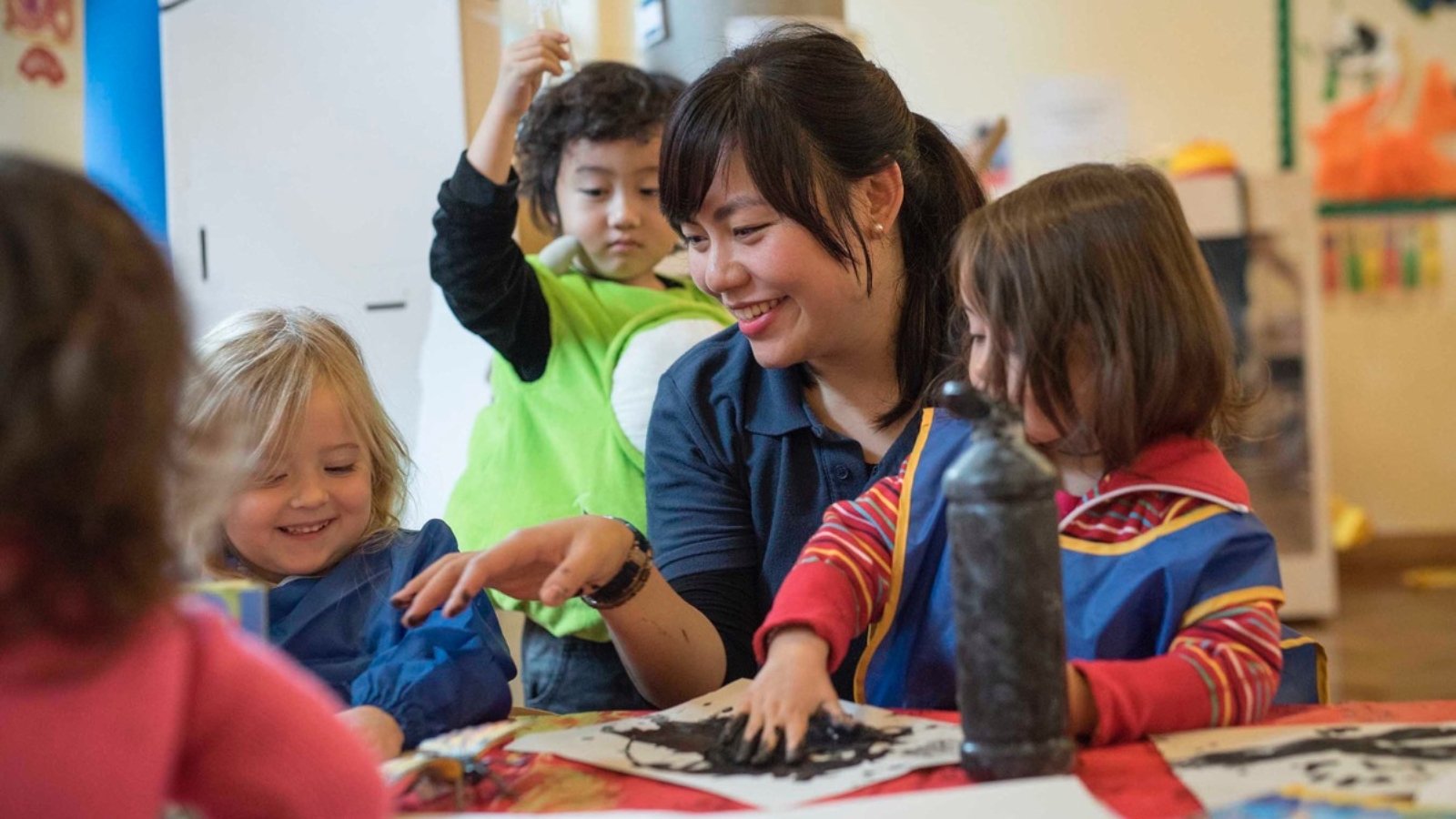For this reason, there's a crucial need to find effective ways to support children experiencing these learning difficulties.
"In middle school, a student who had failed a grade joined our class. It later became apparent that his repeated failure was due to struggling with learning disabilities. He was, by no means, unintelligent. He was one of the brightest students, without any exaggeration. However, he was scatterbrained. His attention would quickly wane, leading him to forget everything he had learned. Mathematics, reading, and writing were his major weaknesses. I won't tell you about the extent of my surprise when I met him with my husband, arranged by a friend who had recommended him as the best painter in the city. Instead, I'll share insights on how to deal with children experiencing learning difficulties. I was quite taken aback when I met him with my husband in a meeting set up by a friend who touted him as the finest painter in the city. But let's set that aside for now. I'm here to shed light on how to support children facing learning disabilities.
What Is Meant By Learning Disabilities?
A quick overview of learning difficulties is essential before delving into the details of how to deal with children experiencing these disabilities. Learning disabilities, according to the Association for Children and Adults with Learning Disabilities, are an ongoing condition assumed to result from certain neurological factors that interfere with both verbal and non-verbal capacities in human development. Learning disabilities persist as a distinct impairment despite possessing normal or above-average intellectual abilities, ample educational opportunities, and intact sensory and motor systems.
It is worth mentioning that learning disabilities manifest in varying degrees of severity. They affect an individual's self-esteem, social adaptation, upbringing, career, and everyday life activities.
So, learning disabilities are the conditions individuals face during conventional education, impacting their memory, concentration, and organizational skills. They also affect their mathematical, writing, and reading abilities. This necessitates that a child or adult facing them take extra time compared to their peers or use supplementary educational tools in the classroom or at home to complete their academic tasks and overcome learning disabilities.
It's worth noting that there is no cure for learning disabilities, and their effects extend throughout an individual's life in academic, professional, and social aspects.
Factors Contributing to Learning Disabilities
To understand the correct way of dealing with learning disabilities, it is essential to know the reasons behind these challenges. Scientists have not yet pinpointed the definite cause, but they have mentioned some possible factors, including:
- Genetic influences, environmental effects, and brain development may be potential causes of learning disabilities due to their impact on overall growth.
- Hereditary factors are also among the presumed causes of assumed learning disabilities that scientists have yet to confirm, as they intertwine with acquired behaviors a child learns by imitating their parents.
- The brain's development before birth is noteworthy because it is observed that children born prematurely or with low birth weights are more susceptible to experiencing learning disabilities.
- Being subjected to a head injury can be one of the causes of learning disabilities.
- Among the previously mentioned causes of learning disabilities, a variety of environmental influences, including pollution, toxins, and childhood malnutrition, play a significant role.

How to Deal with Children with Learning Disabilities?
Some might think it's solely the school's responsibility to handle children with learning disabilities because they're the ones providing education. However, we want to set the record straight and underline the huge and essential role that families play in helping children cope with learning challenges. For this, we're offering these steps to show how to support children facing learning difficulties:
1. Child Monitoring
The first step in learning how to deal with children experiencing learning disabilities is to pay attention and observe any struggle the child may face in their cognitive development before and during school age. In case of suspecting any issue, it's important to seek and engage with specialists to discuss the matter.
2. Child Assessment
It's crucial to assess a child's learning difficulties using specialized evaluations designed for this purpose before jumping to conclusions. The assessment forms can be obtained directly from a specialist, and some are available online. The family needs to be precise and honest in answering the questions posed by the specialist during the assessment, as an accurate assessment of children helps in arriving at a precise diagnosis that contributes to understanding how to deal with children experiencing learning difficulties.
3. Dealing Positively with the Case
Dealing positively with children after obtaining an accurate assessment of their condition is one of the most important steps related to how to handle children facing learning disabilities. This is because taking responsibility for acknowledging the problem and deciding to help the child leaves a clear and tangible positive influence on addressing their case.
4. Patience and Acceptance
Patience and acceptance are the primary keys to dealing with children experiencing learning disabilities. They serve as the linchpins to help these children overcome their situation, as it's illogical to punish or blame the child for a condition that is not their fault, to accuse them of negligence, or to burden them with responsibilities that are beyond their capabilities.
5. Educating Oneself about Learning Disabilities
To understand how to deal with children facing learning disabilities, it's essential to read extensively on the subject, listen to experts' opinions, and undergo related training to acquire the necessary skills for effectively communicating with these cases.
6. Teamwork
Collaboration between the family, the school, and special education specialists is crucial to determining the most effective approach to supporting children with learning disabilities. Both the family and the school should diligently follow the specialist's guidelines for the child's best interest.

How to Deal with Children Experiencing Academic Learning Disabilities?
Here are some strategies on how to deal with children experiencing academic learning difficulties, aiding their acceptance of educational material:
- Accepting the child's condition and handling it positively, avoiding comparisons between them and their peers in order not to point out their differences.
- Seeking easy teaching methods that cater to the child's strengths and avoiding emphasis on their weaknesses in delivering educational content.
- One of the key fundamentals in dealing with children experiencing academic learning difficulties is to avoid ridicule, belittlement, or methods of reprimand and threats while presenting educational content to them.
- Supporting the education of children facing learning disabilities with appropriate teaching tools, visual aids, three-dimensional models, and other tangible items that prove more effective in educating the child, while avoiding rote teaching methods and dry explanations as much as possible.
- Lowering expectations from children experiencing learning disabilities means not anticipating immediate responses from them to prevent frustration or dismay for the teacher. This is because patience, calmness, and repetition are the most essential elements for teachers dealing with children facing learning disabilities.
- Showing firmness during the child's educational process and not allowing them to take control or manipulate the allocated learning time.
- Employing teaching methods that revolve around thought-provoking questions and tasks that align with the child's cognitive and perceptual abilities, neither overly challenging nor excessively simple, while assigning specific time frames for each task.
- Gradually addressing homework tasks based on time, starting with assignments that require a shorter time, then progressing to tasks that demand more time.
- Selecting teachers who are willing to work with and handle children facing learning disabilities, sufficiently knowledgeable about teaching and interacting with this group, eager to impart necessary skills, and flexible enough to switch to simpler methods and approaches if one fails to teach the child a skill.
- Involving the child actively in selecting educational activities and their role in using them while allowing sufficient time for solving exercises or answering questions, however, rushing them may yield contrary results.
- Building new educational experiences on the foundation of previous educational experiences and creating daily plans to monitor the child's progress, including daily instructions and assignments.
- Acquiring knowledge of behavior modification methods is crucial when dealing with children experiencing academic learning disabilities and applying them effectively in interacting with them.
VAKT method, also known as the Multi-sensory approach
It's impossible to discuss how to deal with children facing learning disabilities without addressing the VAKT method, known as the “multi-sensory” approach. This method is among the most effective in delivering educational material to children struggling with learning disabilities. It relies on engaging a child's multiple senses during the learning and training process, enhancing their comprehension of the educational content. It also facilitates teachers' and parents' academic interactions with the child, enabling them to enrich the educational process.
For instance, if a teacher wants to educate a child with learning disabilities using the VAKT method on types of fruit, they must verbalize the names of the fruits (engaging the sense of hearing), write their names on the board (involving sight), physically handle the fruit (touch sensation), taste it if possible, and pronounce it as well.
In Conclusion
Learning difficulty is one of the conditions that causes a child to lag behind their peers in both academic and non-academic learning. Its severity varies from one child to another, but the common factor is that it requires specific methods for handling children with learning disabilities applied by both the family and the school, in addition to adhering to the instructions provided by the specialist overseeing each case.






Add comment